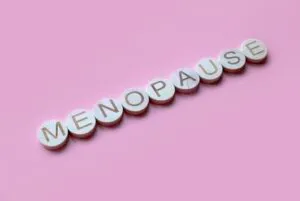 As we grow older, our immune system does not work as diligently as it did when we were younger. There have been numerous studies on sex hormones and immune system function.
As we grow older, our immune system does not work as diligently as it did when we were younger. There have been numerous studies on sex hormones and immune system function.
Many factors affect how the immune system functions. Females are more likely to become victims of autoimmune diseases like Multiple Sclerosis, Crohn’s Disease, Lupus, and other thyroid disorders. There has been a significant rise in autoimmune diseases in women over the past 30 years. This trend is not only very concerning; there is no simple explanation as to why this is happening in women more than men. Some theories are that the difference in levels of the sex hormones, estrogen, and testosterone between men and women could be the culprit. Since women are at a higher risk of developing autoimmune diseases, this indicates that sex hormones mitigate certain autoimmune conditions.
During pregnancy, women with autoimmune disorders often see a relief in their symptoms due to the increase in estrogen, only to see those same symptoms return or worsen post-pregnancy, after estrogen drops. This corresponds with the theory that declining estrogen weakens the immune system. Proper estrogen balance is essential, as a reduction reduces levels of B-cells and T-cells; these cells are the primary cells of the immune system. Women that experience early menopause are at an increased risk of developing autoimmune disorders than women that have a greater decline in hormone function later in life. Those that already suffer from immune disorders will likely see a worsening of those conditions. The overall reduction of sex hormones can contribute to changes in the function of the immune system. This can mean being more susceptible to the common cold or viruses. The inability to fight off these bugs can lead to serious health conditions. This has been a hot topic recently with the COVID-19 pandemic. Older people are more likely to succumb to the virus.
Bio-identical hormone replacement therapy (BHRT) is helpful for improving the debilitating symptoms associated with menopause; it can also aid in building up the immune system, especially when women are supplementing with estrogen.
Estrogen stimulates the production of anti-inflammatory, immune-boosting cytokines, which, in turn, protect against and help alleviate and slow the progression of certain autoimmune diseases. If you are dealing with any of these conditions, discuss with your physician how you can be improved with a hormonal replacement therapy (HRT) plan—it may make all the difference.
A proper balance between estrogen, progesterone, and testosterone is essential to overall health and wellness. More research is needed in the arena of immune disorders and deficient hormone levels. However, with what has been learned about auto immune disorders, there is hope with bio-identical hormone replacement therapy.
There is still much to be researched in the area of immune dysfunction and menopause; however, the research that is proving the link between hormone fluctuations and immune disturbances is quite strong.






